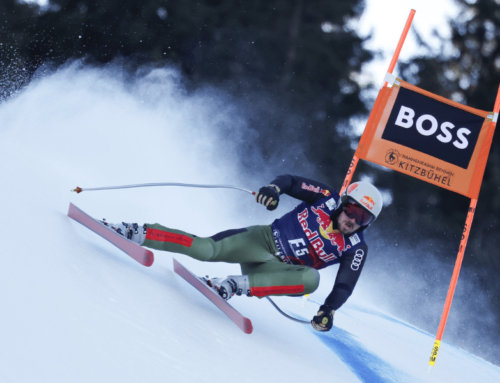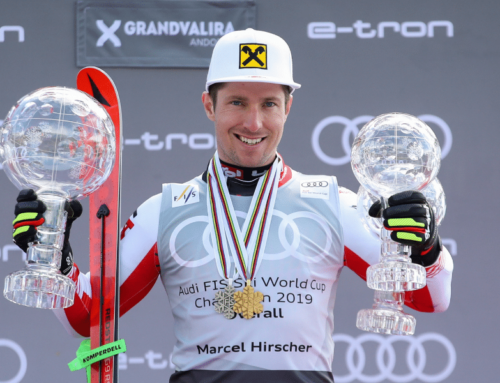TORINO: Hermann Maier angered by undercover doping control in Olympic village
TORINO: Hermann Maier angered by undercover doping control in Olympic village SESTRIERE, Italy – A doping control officer presenting herself as a fan eager to meet Hermann Maier sprung an unannounced drug test on the Austrian skier Thursday evening in the athletes’ village at Sestriere, Italy.
SESTRIERE, Italy – A doping control officer presenting herself as a fan eager to meet Hermann Maier sprung an unannounced drug test on the Austrian skier Thursday evening in the athletes’ village at Sestriere, Italy.
“It’s not good if they say to him they are fans,” Maier told Ski Racing magazine, jerking his head in the direction of his agent. “For sure it’s better if they are honest. There is no problem for me if they make the control. It’s part of the sport.”
According to Walter Delle Karth, Maier’s agent, the doping control officer was an Italian blonde woman in her 30s who kissed Maier on the cheek after the test was taken.
It is not unusual for anti-doping officials to use the element of surprise in their tests. But Maier said the way this test was carried out was unprofessional.
“They asked the coaches first and said they were great fans and they wanted to see him,” said Delle Karth. “After the testing she kissed Hermann, because she turned out to be a real fan.”
The doping control officer initially approached Walter Hubmann, the downhill coach for the Austrian team, about 2 p.m. Thursday afternoon.
“It happens very often that people ask for Hermann, you know,” said Hubmann, who was in a hurry when the woman approached him with another person by her side.
“I thought maybe they need an autograph of something, because first of all they didn’t introduce who they were or what they wanted to do.”
Hubmann couldn’t recall what they were wearing, but Delle Karth said that “they were in official uniforms.”
They proceeded to the laboratory where official tests are carried out in Sestriere.
“The method was unusual,” said Austrian team doctor Wulf Gloetzer. “It’s against human rights, the way they did it. It’s incredible.”
Maier estimates that he has been tested more than 70 times in his career, and said that this is more than any other alpine racer.
“I am for sure at the top of the whole circus,” said Maier. “It’s not the first time for me. There are a lot of times.”
Maier said the doping officer tested his blood and urine Wednesday. Delle Karth told Ski Racing that it was an IOC test.
“Obviously they like to play fun and games,” Delle Karth said. “What they think is fun and games. They were officials. They were in the official uniforms. … They were Italians. I have no idea where they are from. … They asked the coaches first and said they were great fans and they wanted to see him.
“[Maier’s] not upset. They asked him to be honest, and he wants to be honest, and he does everything to be a good sportsman. … He’s not upset at all. They were behaving in a strange way.”
On Thursday, the world’s top anti-doping official said he would use any means necessary to pursue the doping problem in sports.
“[It] is very clandestine,” WADA’s Dick Pound said in a news conference. “It is rarely accidental. You use whatever means you can. I have no compunction about using informants.”
Pound is the chairman of the World Anti-Doping Agency and a powerful member of the IOC.
“The only problem is [that] most of the time when I’m sick, there is a control, and that is not normal,” said Maier, who said he was suffering from flu-like symptoms earlier this week.
“Last time I had a sprained rib and there was a control, but it’s not often [happening] when I have nothing,” he said.
According to The Associated Press, on Wednesday, Austrian nordic combined skier Mario Stecher also gave blood and urine samples in the athletes’ village, this time to a man posing as a journalist seeking an interview. The man followed Stecher into his room and then ordered him to provide samples.
IOC spokeswoman Giselle Davies would not say whether Maier was tested, citing the athletes’ right to confidentiality.
“There are rules and procedures that are available to the teams, the athletes and the media,” she said. “The athletes have to make their availability known. The process is open and transparent.”





















